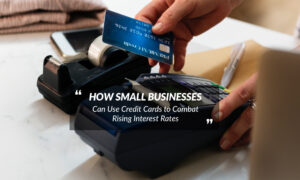Credit fraud is the leading complaint from consumers in the weeks leading up to April 15, which is the tax deadline day. The reason is that W-2s and tax returns, which contain personal information, circulate through the mail and over the internet. Identity thieves will use every chance they get to steal your credit card information. It means you should be alert and take any step you can to protect your personal and financial data. Here are five tips to help you avoid these scams.
Avoid Sharing Confidential Information
Make sure you protect your financial information. For instance, don’t provide your bank account information or social security number to anyone who contacts you over the phone or online. Remember that the IRS or your bank won’t contact you regarding this information.
Look Out For IRS Imposters
During tax season, many scammers will pose as the IRS and email or call claiming that you owe taxes. They may even threaten you with arrest if you don’t pay them using your credit card or debit card. They may have some information about you and can rig an email address or caller ID to make it look as if the IRS is trying to reach you.
What you should know is that the IRS won’t ask you for wire transfers or ask you to pay using your credit card. The IRS will always try to contact you by mail. If you have any doubts, you should call the IRS.
Make Sure You Check Your Mail
Scammers will look for mail such as tax refunds, monthly credit card statements, W-2s and that may contain your personal information. If by any chance you fail to receive your W-2s, you should contact the IRS immediately.
Shred Important Papers
You should shred unused credit card offers, bank statement and receipts before you throw them away. Store your tax documents in a secure place to ensure you protect your information.
Protect Your Computer
Another tip to avoid credit fraud is to make sure you install virus protection on your computer if you plan to file taxes online. You should also make sure that the browser’s padlock is active and you are using a secure website. A secure website will have an “s” after the “http” in the URL.
Credit cards aren’t bad to have, but you need to ensure you protect yourself from scammers out there who commit credit card fraud. During the tax season, scammers may try to con you since you have a credit card. Just remember Credit card issuers do not call to harass you. Make sure you’re aware of warning signs that someone is trying to scam you. Critical information goes through your mail, which means you should ensure you check it regularly.



